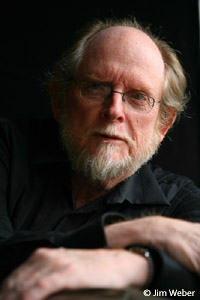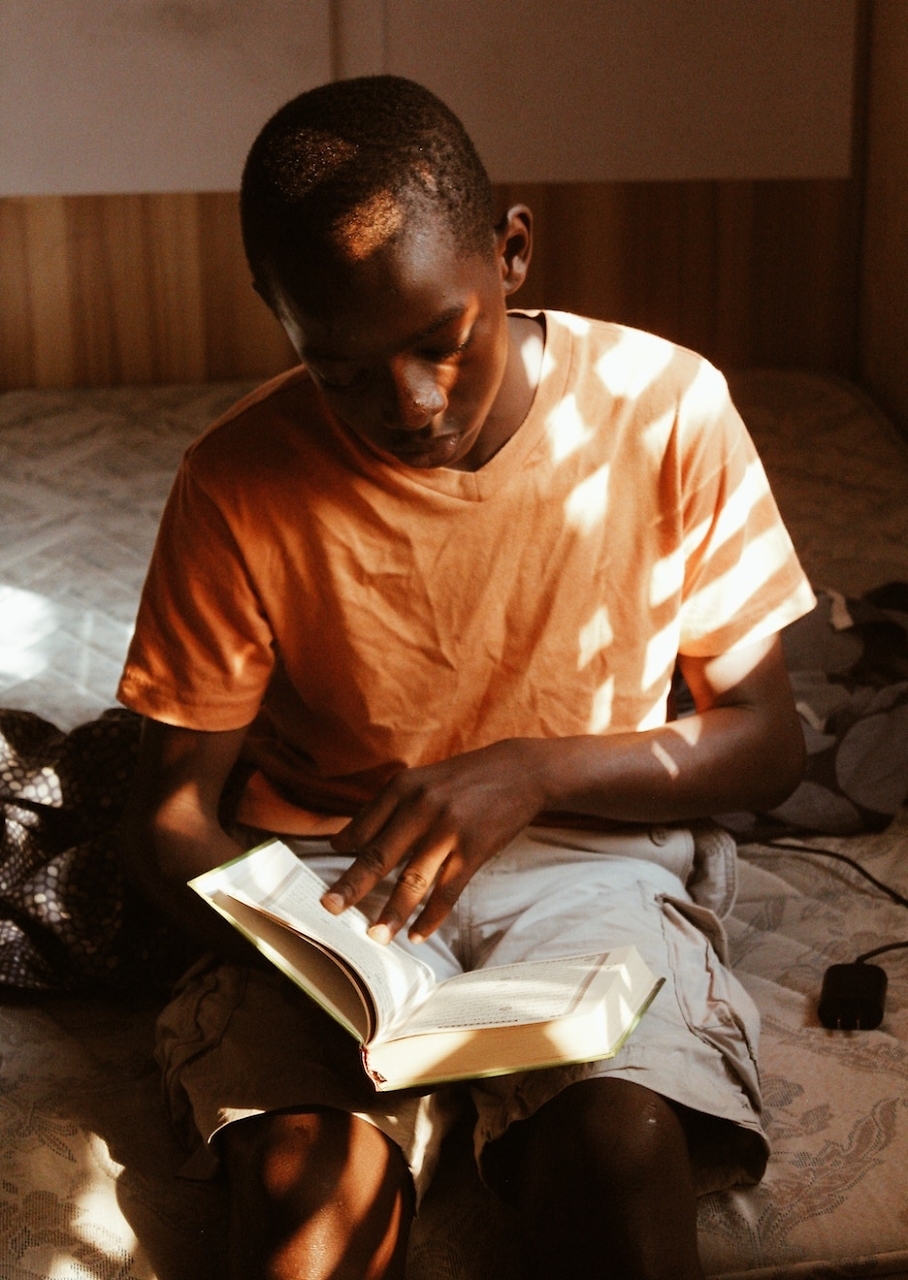Chekhov in Memphis
Novelist Richard Bausch adds the Dayton Literary Peace Prize to a shelf full of awards
When novelist Richard Bausch was a child, his father would tell him about his days in the army, many of them spent slogging alongside hundreds of thousands of other Allied soldiers up the Italian Peninsula during World War II. These weren’t bedtime stories: what was supposed to be a quick conquest took nearly two years to complete, and 60,000 Allied soldiers, 50,000 Germans, and 50,000 Italian soldiers and partisans died in the process. It was the bloodiest theater in Western Europe.
The Italian campaign was the site of atrocities rarely seen in the Western European war. After the Germans took over from the deposed Benito Mussolini, they razed villages, executed people on the flimsiest evidence of partisan activity, and systematically murdered thousands of Jews.
 The Allies could be ruthless themselves. One day Robert Carl Bausch, Richard’s father, told his son about a suspected partisan captured by his unit. With time at a premium, his commanding officer ordered him to take the man into the woods and execute him.
The Allies could be ruthless themselves. One day Robert Carl Bausch, Richard’s father, told his son about a suspected partisan captured by his unit. With time at a premium, his commanding officer ordered him to take the man into the woods and execute him.
But when the pair got far enough away from Bausch’s unit, Robert found he couldn’t do it. The suspect was an old man; what possible harm could he do to the Allied juggernaut? And Bausch let him go, firing a shot into the ground to give himself cover. The man fled; Bausch returned to his unit, and the war went on.
That story became the basis for Richard Bausch’s latest novel, Peace, which is dedicated to his father and which recently won the Dayton Literary Peace Prize. “It was something I had known about for a long time,” says Bausch, who teaches creative writing at the University of Memphis. “I had just finished writing a short story, and I was feeling good. I’d been up late, and I went to bed freezing, because I’d been sitting next to a cold window, writing. And then in bed I thought of the story. I got up again and wrote. It took me six weeks to finish.”
On its surface, Peace is an ironic choice for a peace prize. The book, which follows a few days in the lives of three American soldiers sent to scout out a hill ahead of an advancing tank battalion, opens with a scene of graphic violence: before separating from their squad, the three are part of a shootout between their own patrol and a surprised German soldier and his Italian lover.
The German manages to kill two Americans before being gunned down. What happens next provides the moral question around which the rest of the novel circles: the squad leader, Sergeant Glick, coolly executes the unarmed woman. “She fell back into the tall wet stalks of grass by the side of the road, so that only her lower legs and her feet showed,” Bausch writes. “She went over backward; the legs came up and then dropped with a thud into the sudden silence.”
The incident haunts the three men—Marson, Asch, and Joyner—as they climb through freezing rain and snow up the hill. Along the way, they take on an old Italian man as a guide; he speaks little English, and it’s unclear why, beyond fear, he agrees to show them the way. The novel, a mere 171 pages, manages to be both taut and elegiac; like the snow that threatens to bury the men each time they stop to rest, it is a delicate balance between beauty and death, war and peace. Reviewing Peace for the Guardian, British novelist A.N. Kennedy wrote, “[Bausch’s] handling of his protagonists combines a surgeon’s detachment with a father’s care; the characters go where they must, but are observed with a wounded anger, a passion that propels the narrative and underlies the deft descriptions.”
The novel, a mere 171 pages, manages to be both taut and elegiac.
Winning the peace prize for literature surprised the author as well. “I didn’t set out to write a book to promote world peace; the person who does is doomed,” says Bausch, whose laconic voice and thick gray beard give him the air more of a tugboat captain than a novelist. Yet the book also shows moments of mercy that are at once wholly believable and at the same time heightened by the vicious fog of war in which they take place.
World War II Italy is an unusual setting for a Richard Bausch story—most of his ten other novels and scores of short stories are set in small-town America, among working-class and lower-middle-class families. Like many writers of his generation, Bausch is an acolyte of Anton Chekhov, a lifelong influence reinforced by his time at the famed Iowa Writers’ Workshop in the 1970s, when realist authors like Raymond Carver, John Cheever, and Stanley Elkin ruled the pedagogical roost.
Yet also like many of his era, Bausch simply writes what he knows. Born in 1945 to Catholic parents at Ft. Benning, Georgia, his early life is a palimpsest of the rising fortunes of postwar America. Back from the war, Bausch’s father moved his family—Richard, his mother, and five siblings—to Washington, D.C., where he took a job with the Agriculture Department. “He wanted to be a sports writer, but then the kids came along,” Bausch recalls.
His father prospered. In 1957 he took a job selling cars, and soon his salary was high enough to settle the family in the cozy streetcar suburbs of northwest Washington. “He did pretty well at it,” Bausch says. “It was so cool—we’d have a new car every few months.”
Living in Washington was a crucial experience for Bausch in other ways, too. Though his family was hardly at the forefront of the civil-rights movement, life in the segregated capital made for almost daily lessons in the violence and injustice of racism. “My parents were rather amazing,” he says. His father made sure Bausch and his siblings saw every crack and crevice of the city, monuments and ghettos alike. “It was important to him that we understand that you take everyone one at a time. That’s the best damn hedge against racism. You can’t make assumptions about people.”
That education became a foundation for Bausch’s writing sensibility. His stories and novels are intensely character-driven; he eschews broad social drama and regional genres in favor of internal experience. Despite setting most of his work in the fictional town of Point Royal, Virginia, “I never really cared much about setting, and I paid for it,” he says. “The landscape is interior.”
Bausch read regularly in high school but, unlike many writers, he didn’t catch the literary bug until after he left the Air Force, which he entered in lieu of college. “I really had no idea what I would end up doing,” he says. “Then I met this guy playing a guitar. I knew I could sing, so I learned to play, and I ended up singing in clubs, for a little extra money. Then I started writing songs. Then I started writing stories. It was like falling into it. I went around for a while with the suspicion I was a writer, like some people have the suspicion they were adopted. But it seemed truly presumptuous that I could ever be one.”
After a few years of scraping by on the club circuit, playing guitar and performing standup comedy, Bausch enrolled at George Mason University, a newly founded public commuter school meant to serve the exploding northern Virginia suburbs. It was a good move: his writing career, nurtured by attentive teachers, took off. He began getting stories published while still in school, and in his senior year he applied for graduate study at the University of Iowa’s Writers’ Workshop, then—and still—one of the preeminent creative writing centers in the country.
Novelist Allan Gurganus, author of Oldest Living Confederate Widow Tells All, was a graduate assistant at the Workshop at the time, helping to select the incoming class, and he vividly remembers the moment he read Bausch’s application. “I went running down the hall, knocking on doors shouting, ‘I found one!'” he recalls. Bausch arrived in 1974.
Bausch and Gurganus became roommates and fast friends, along with such future literary luminaries as T.C. Boyle and Jane Smiley. “We were drunk on writing, drunk on literature; we wanted to stay up till one a.m. talking about Faulkner,” says Gurganus. “There was an idea that [our class] was smarter than the average bear.”
After graduating, Bausch moved back to northern Virginia to write and teach at George Mason. Within a few years he was being regularly accepted at the likes of The New Yorker and The Atlantic. His twin brother Robert, also a successful novelist, lived nearby and taught at Northern Virginia Community College.
Bausch soon expanded to novel writing, and he took his place in the front ranks of the realist-fiction wave led by Carver in the early 1980s. He published his first two novels, Real Presence and Take Me Back, in 1980 and 1981, respectively, to positive reviews and gathering accolades. He received a grant from the National Endowment for the Arts in 1982, a Guggenheim Fellowship in 1984, the Lila Wallace-Reader’s Digest Best Writers’ Award in 1992, and the American Academy of Arts and Letters’ Award in Literature in 1993. Along the way he picked up the O. Henry Prize, the Hillsdale Award for Fiction, and a membership in the Fellowship of Southern Writers. (He is now that group’s chancellor.)
Bausch is known as a workhorse writer, someone who can reliably churn out high-quality prose on a schedule. He does not stand or fall on inspiration—”I’m working on something every day,” he says. “When I don’t write for a day, I feel bad.” Despite the heavy workload promoting Peace, he already has another book on the way, a collection of short stories due in February from Knopf.
In 2005, after nearly thirty years at George Mason, Bausch made a surprise move to the University of Memphis, where he holds the Moss Chair of Excellence in English. Memphis offered him more money and a lighter workload, and he says he has already taken to Memphis—”the crepe myrtle, the music, the food”—though he admits to a certain wistfulness about leaving Northern Virginia. “There’s a little sadness,” he says. “Life is a casting off. You make your way the best you can.”
(This feature originally appeared on November 9, 2009.)


